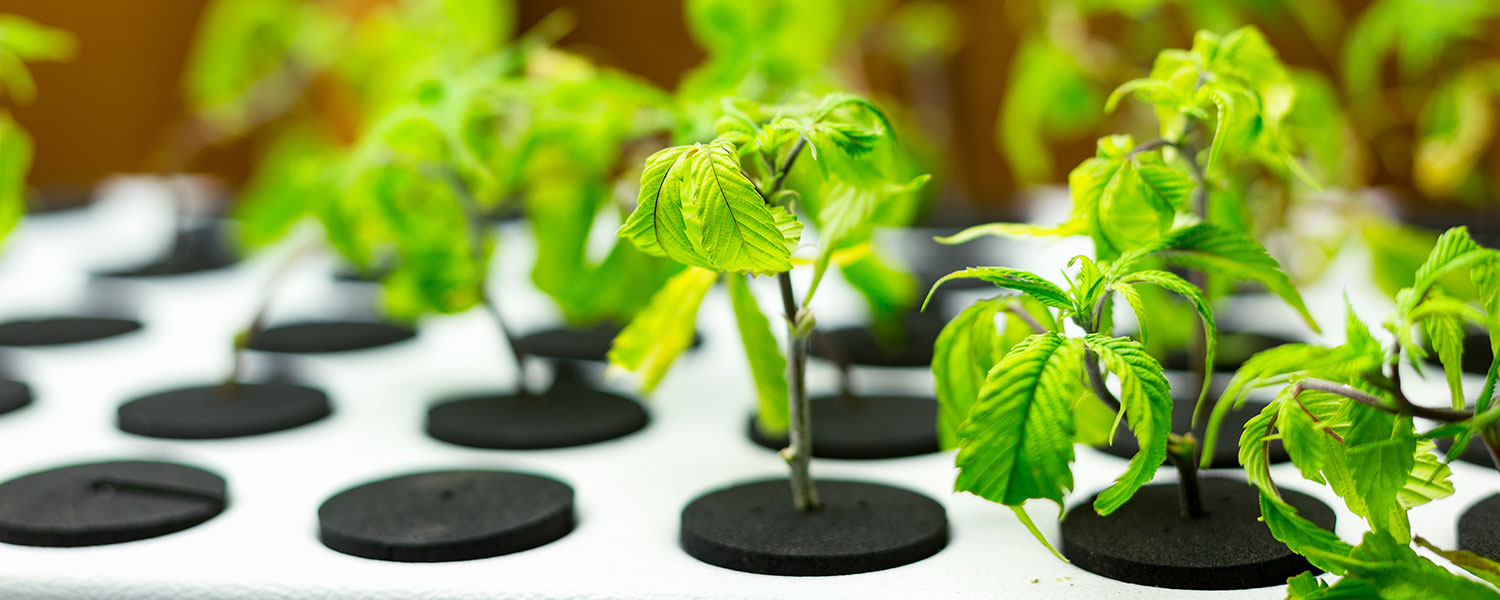Key Takeaways
- Cannabis cloning allows growers to get consistent genetics across multiple plants for more predictable results.
- Cloning machines create optimal conditions for cannabis clippings to grow into cloned plants.
- Both hydroponic and aeroponic cloning machines are available. Aeroponics may be simpler for new growers.
Today, thousands of cannabis strains exist. This vast cultivar diversity arises as growers strive to meet the demands of an immensely diverse customer base and their unique preferences.
While many cultivators produce stellar strains, many consumers grow the plant at home. Rather than roll the dice with new seeds, many home growers turn to plant cloning to ensure their plants are predictable, genetically consistent, efficient, and likely to grow with minimal worries.
While cloning machines don’t necessarily make weed growing easy, they certainly help cut down on some risks in an often challenging cultivation process.
What is Plant Cloning?
Plant cloning is a critical component of many cannabis cultivation operations. The process involves creating genetically identical plants from their "mother plant," or the plant selected for duplication.
Typically, clones, cannabis or otherwise, are made by clipping the mother plant and potting the cut segment into the soil. This allows the clone to establish roots and eventually grow just as the mother plant, producing matching characteristics and effects.
Rather than using seeds and sexual reproduction, plant cloning provides growers with a significantly better chance of successful crops. Clones are typically produced from strong, healthy plants with a lineage of ideal outcomes.
In the case of cannabis, this means plants that are pest- and disease-resistant and capable of producing robust terpene profiles, THC potency, and other ideal characteristics found in a top-shelf cannabis cultivar.
Why Clone Cannabis?

Master cultivators can make the often daunting cannabis-growing process quite manageable. But for most people, especially the majority of home growers, they may not want to risk growing subpar or unconsumable flowers.
With plant cloning, growers have better control over their cannabis and overall experience:
- Controlled Environment: Cloning machines help create a stabilized, controlled environment where delicate clippings can begin to root and grow strong, just like their mother plant.
- Assured Quality: Using clones ensures that plants originate from established, successful strains, helping to maintain the legacy of reliable production that the mother plant is known for.
- Consistency: Using clones increases the likelihood of producing top-shelf strains that are potent in terpenes and THC potency. Ideal mother plants also pass on critical survival traits, with clones expected to withstand adverse weather conditions and plant diseases.
- Female: Consumable cannabis comes from female plants, which isn't assured when growing from seeds. Using a clone from a mother plant ensures female yields, eliminating the risk of a male-plant yield.
- Faster: Growing isn't a race, but clones do cut down on production, as clones skip the early-stage germination process that seeds must undergo.
What is a Cannabis Cloning Machine?
A cannabis cloning machine is a sophisticated device that creates the optimal conditions for clippings to root, grow, and succeed. Once a plant is clipped, growers place it in the machine's indoor apparatus, which contains tools to help create and maintain ideal environments for the clone to develop its roots.
Under customizable, optimized environments, clippings can establish their roots at a faster rate. Cannabis clippings in a cloner typically develop their roots in 10 to 14 days.
Cloner machines are available in various sizes, ranging from small home grows to large-scale commercial ventures, and are designed for both hydroponic and aeroponic cultivation.
Hydroponic Cloning vs. Aeroponic Cloning

Hydroponic and aeroponic are two popular cultivation methods in cannabis production, providing alternatives to soil-based growing.
Hydroponic cloning involves placing clippings into a water-based solution containing various nutrients essential for plant growth.
The soilless process helps deliver the nutrients plants need while often producing roots within a short period, typically two weeks or less. The process is manageable for newer growers and ideal for indoor cultivators with limited space.
However, hydroponics can lead to waterborne diseases in plants. This grave outcome can be avoided by maintaining a vigilant eye, closely monitoring nutrient levels, and the water's pH balance.
Aeroponic cloning hangs plants in the air rather than submerging them in soil or water-based solutions. Unlike hydroponics, which places the plant in the nutrient-rich solution for a prolonged period, aeroponic clones are instead misted with the solution.
The misting and oxygen exposure help plants grow faster and develop healthier roots, typically within two weeks. The process is also endorsed by many green growers, who cite its reduced water usage. While effective, aeroponics isn't generally ideal for beginners or growers with limited space.
Choosing the Right Cloner Machine for Your Cannabis

Choosing a suitable cloning machine for your grow operation is crucial. Cloning system specs change depending on many factors. What works for a major name brand often won't work for a micro grower or home cultivator.
When shopping around for a cloning machine, consider the following:
- Size: Matching the machine to the size of the grow is essential. Miscalculations could result in machines being unable to fit in a workspace. Even if a home grower has the space, they should consider starting with a smaller option. With most states capping home cultivation at 12 or fewer plants, small operations won't need the more significant option at a significantly higher price point. If you do choose the big option, be prepared to be in the red for some time on your investment.
- Experience: Beginners may want to stick with a soil- or hydroponic-based grow operation. Once they get an understanding of cannabis growing, they can consider an aeroponic operation, which requires more skill and space to execute appropriately. Also, consider the strains growing. Some cultivars, particularly top-shelf plants, require additional care, consideration, and skill.
Understanding your skill level, goals, capacity, and local laws is crucial for selecting the appropriate cloning machine for your cannabis cultivation site. Assess the options, review device specifications, compare prices, and consider customer reviews to get the most precise idea of your ideal machine.
The information in this article and any included images or charts are for educational purposes only. This information is neither a substitute for, nor does it replace, professional legal advice or medical advice, diagnosis, or treatment. If you have any concerns or questions about laws, regulations, or your health, you should always consult with an attorney, physician or other licensed professional.




